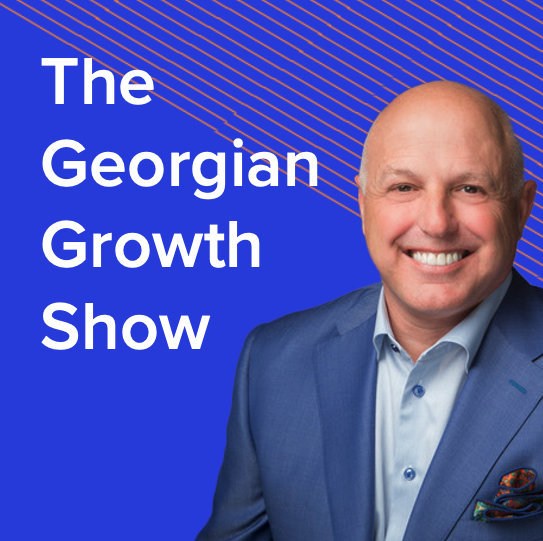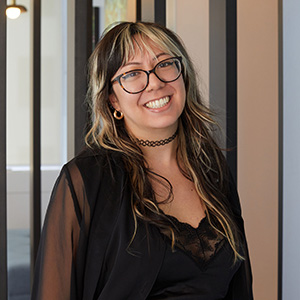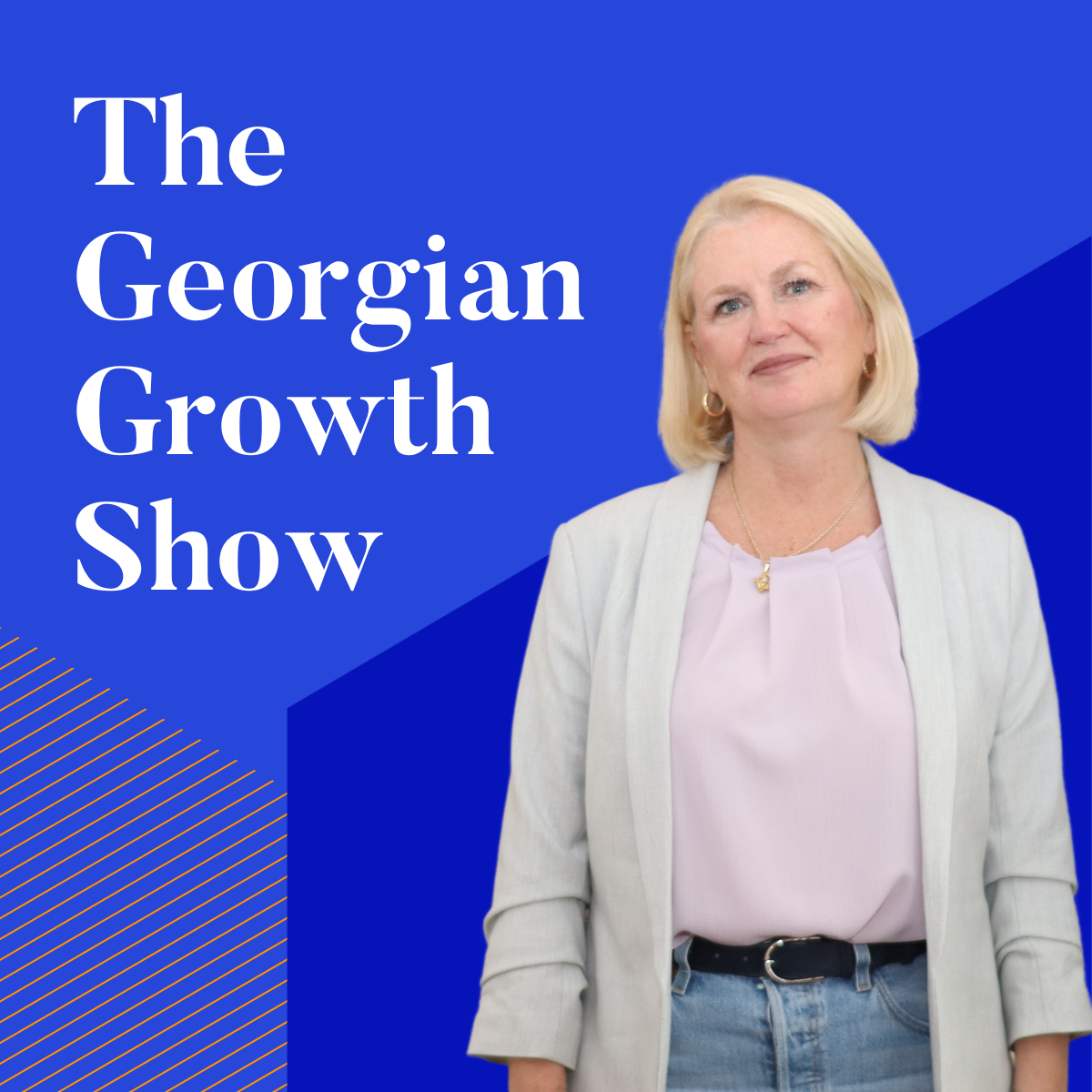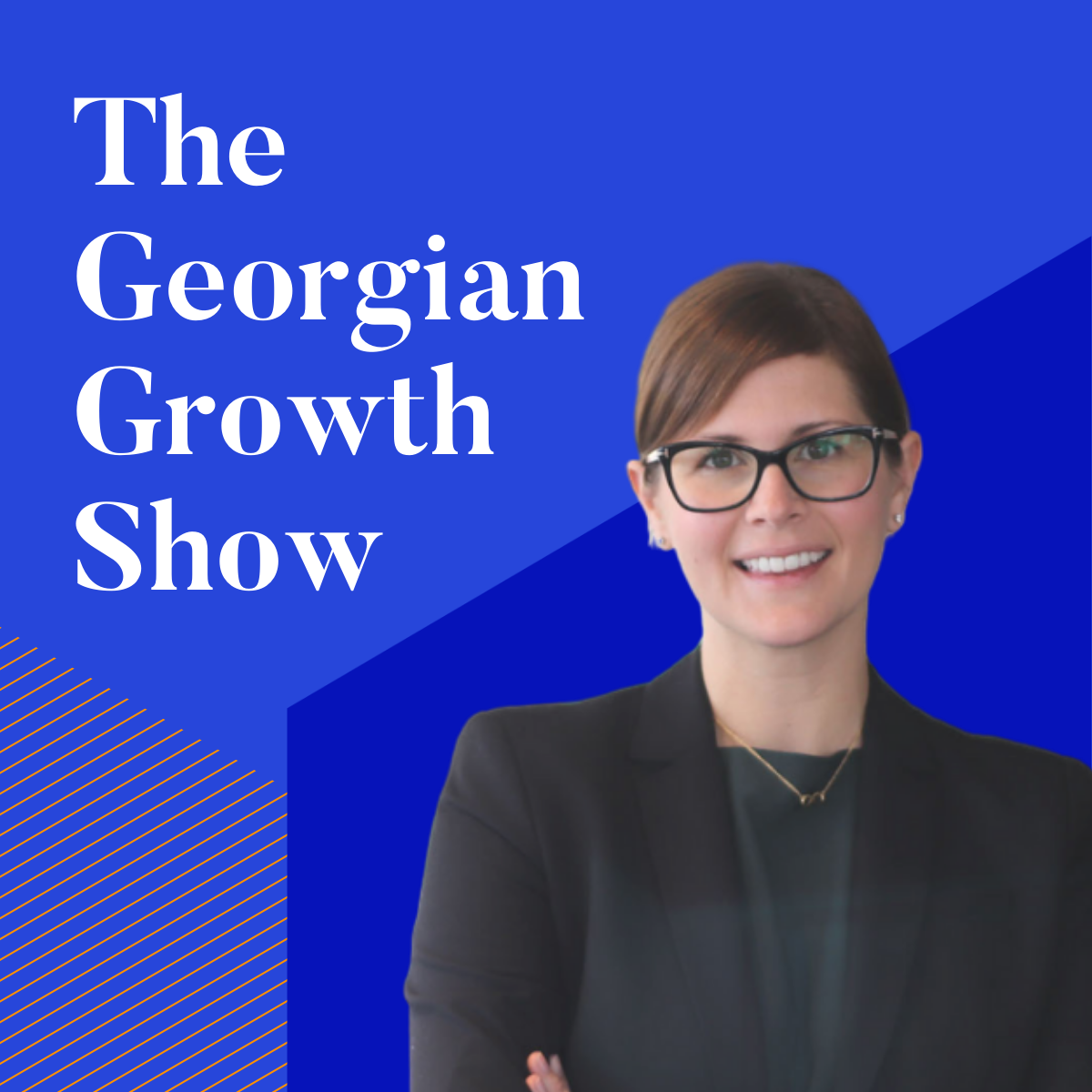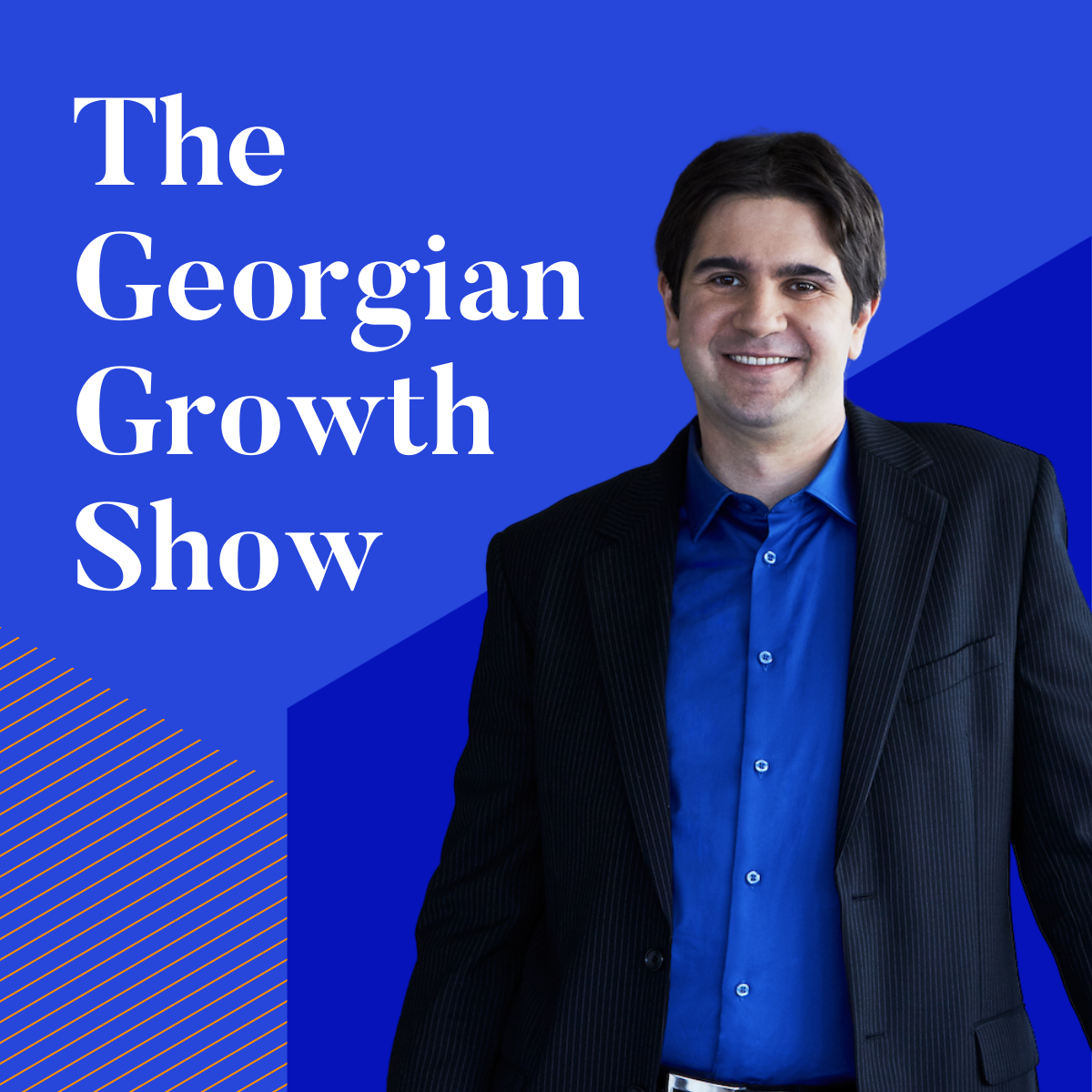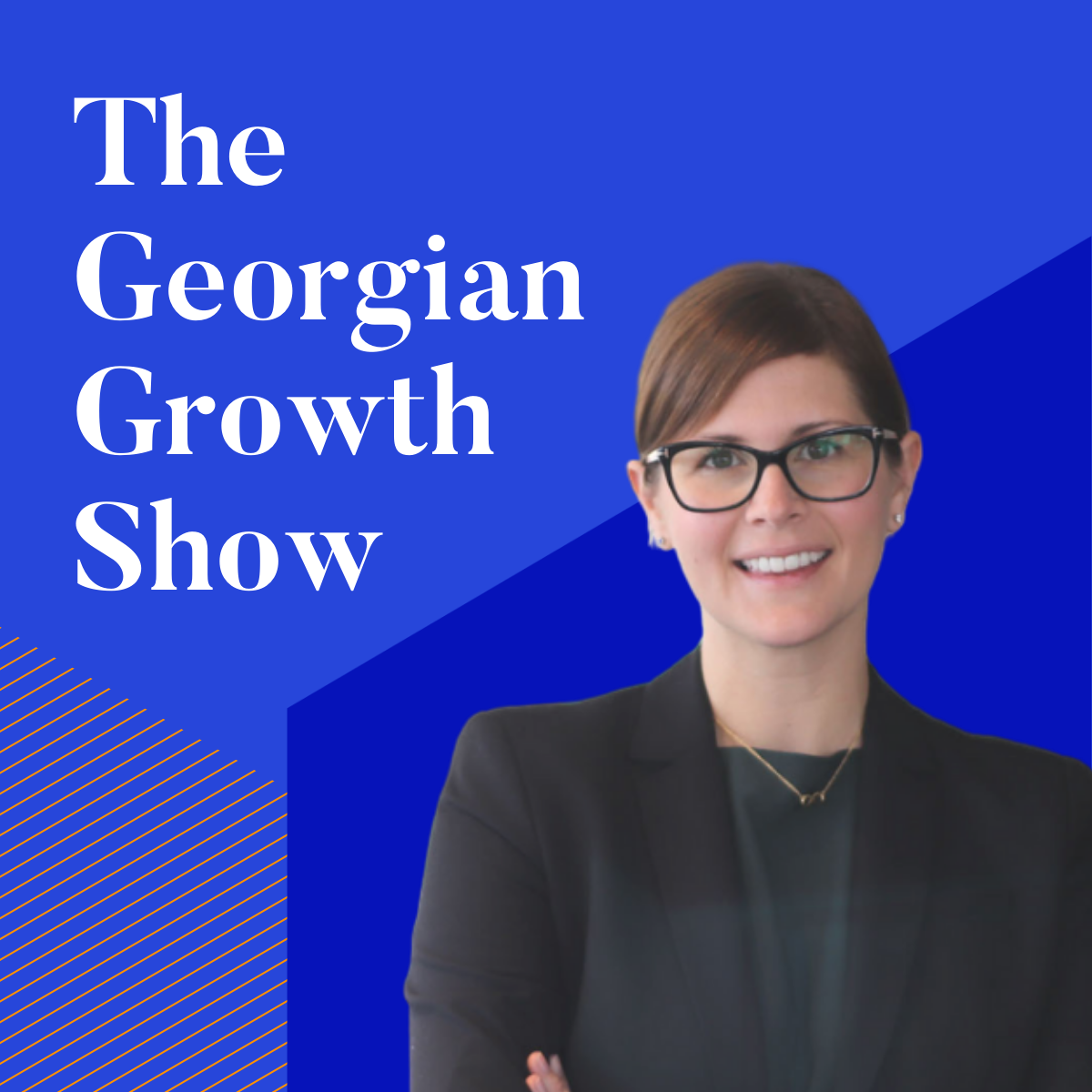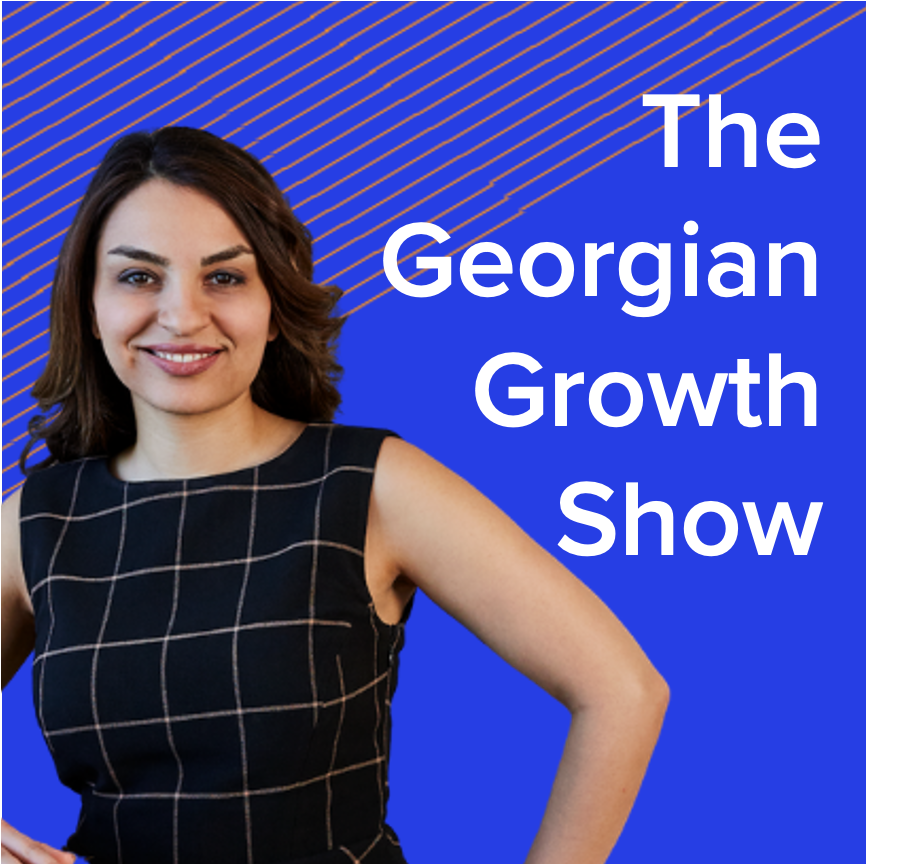Georgian's Joe DiBartolomeo on the Three Leadership Principles to Lead Revenue Teams
- 0.5
- 1
- 1.25
- 1.5
- 1.75
- 2
Hey everyone, Evan Lewis here back with another GP top three today. We're talking to Jodi bartolomeo about his three leadership principles that he uses to lead Revenue teams as a cro.
So Joe for everyone's benefit. Can you share a little bit of an overview of your background and your role at Georgian you have an absolutely I've got a long career and enterprise software life. I spent close to 20 years at Oracle starting in pre-sales and working my way up to be an SVP of sales.
I like to think that I earn my PhD in Enterprise software at Larry Ellison University and after twenty years. I then moved on to Dun & Bradstreet where I was a young member of the global leadership team and I've done & Bradstreet I learned how to be more of a general manager sort of added to the sales skills that I learned that off at Oracle and I also had a short stint running the company that we purchased in the master data management space called charisma.
After Dun & Bradstreet, I I went to a disruptive technology company called click and you had this great product that disrupted the Legacy bi space wage. I learned a lot about culture.
And how to take a long-term view from my time at click be forever grateful from the lessons learned by the CEO their lawyers Bjork still to me how important culture and a long-term viewer and running a business and I took that into my experience on map pluralsight. Where as a member of the executive team. I was the crl and there was a company that had Mission and the vision that I cared deeply about illness amazing run where we were able to take the business in a short two years from 30 million to a little over three hundred million, and we went public be forever grateful working with just an amazing executive team and memories that we created together.
Awesome. Thanks Joe. So given that the audience here for the growth program is you know, it's a lot of CEOs that are in getting into growth stage. They may or may not have a c e r o so given that you you know, you've been in that role before. Can you share your perspectives on how you see the cro Rule and how it relates to the role of the CEO and how those two interact? Absolutely. One of the things that I love about coming to Georgian is that am able to take the background that I have as an operator over the last thirty years of the experience. I've always carried a quota and my role of George in is to take that operate as experience and help our company scale their go to market to bring the real life experiences.
Of operating a business to help coach to CEOs and a c r o s in how to scale their go to market.
And when you take a look at a CEO of a start-up and they're looking for a cro.
It's my perspective that the amazing outcome that I've had at whether it's click Oracle or most recently a plural state.
The CEO and the cro they really need to complement each other. Let me tell you what that means.
Many CEOs that I've met in startups are what I would consider Visionaries.
They've got this great vision for disrupting Market. They're very strong on the product and they've got a little bit of go to market experience.
The cro and a CEO really need to be joined at the hip like to say it's a marriage of two of the most important roles within you know, we Stage Company are also two of the loneliest jobs in any startup or in any software company the weight of the world tends to be on their shoulders.
And I have a c r o.
You need to be a good balance with the CEO.
I knew that my CEO of Neuroscience conard. He had a lot on his plate.
In creating Vision he was working with investors was working with the board. He was getting the right product out there.
The cro needs to take the wheel on all things go to market to be able to drive the vision of the CEO which in a way balance is what needs to be done and how best to do it. I like to call it the back with the IQ and EQ.
Balance of empathy intelligence to see our own needs to align all the teams across product marketing sales and success.
Through a scale to go to market. You've got to do that in a way where you can get the team behind you the scale.
Love that so Joe one of the things that really stuck out to me in our initial conversations and you know, we've had probably five or six and you're short time at Georgian which I've really enjoyed fun things that really stuck out was your first few weeks your calculated approach to coming into a new organization as a leader but being very patient and as we sort of dug into multiple conversations, we've teased that out into your top three leadership principles that you try to bring to to an organization as a leader and as a CRM, so let's unpack those a little bit. Let's dig into listening co-creation and empathy and would love if you could just share a little bit about each one of those and why they're so important to you. Yeah. I think we'd appreciate the fact that you called it a calculated approach.
That approach just comes from years of operating and making these mistakes. So I've got experience with doing the right things and the wrong thing, but then you can narrow it down to
The three you've got to listen, you've got a co-create with the team.
You can have empathy you have to let the team know that you care and I'll start with listening.
The first thing that you learn when you leave Oracle you go to a company like done in Bridge Street is they hired you for your experience? You had a wonderful experience about how to scale an Enterprise software company and the go to market and
You leave Oracle after a 19 years and you show up at Dun & Bradstreet and you're the new kid on the Block.
The big mistake that I made there was I landed at Dun & Bradstreet thinking about how we did things at Oracle.
And whenever you started the conversation with the team at Dun & Bradstreet with the words, here's how we did it at Oracle. You could see the room shut down.
And what I learned was once you did that it was hard to walk it back and it took me some time to do that, but eventually we got there.
So any CEO that's looking for a c r o as a partner. They probably asked the question in the interview about hey, I want to go from 30 million to 1000000000. How are you going to do it I was asked that question.
the word caution I would say is
if somebody already has all the answers to that.
Without landing on the ground and listening.
They might not be the right fit for you. Now. I'm not saying the cro shouldn't have a framework around how to do that. But when I was asked that question by month CEO of plural side when we were sitting in Bryant Park sort of finalizing the agreement of me becoming the cro of plural sentences. How are you going to do it?
I said, I don't know.
And he looked at it.
Nice, let me explain what I mean by I don't know. I'm pretty sure you've got some amazing people there that are doing some wonderful things.
And I want to go in there. I want to wish it for 90 days.
And there's going to be times during that 90 days that you're going to say. When are we going to do something?
When are we going to take action?
And I'm going to ask you to be patient to let me talk to everybody through the process to find out how they're feeling. What's working. What's not working? What would they do if they were made?
And I did that for 90 days.
And then when we changed the go-to-market, it wasn't what I did.
From a past experience, but it was like what we could co-create together because I listened to the team and they felt part of it.
So cool creation is really the second most important thing that you can do as a leader to drive the go-to-market.
To go into an company and think that the people that are there that are closest to the customer that are closest to the day-to-day.
don't have value is a mistake that many early-stage Sorrows make
they come in with here's how we should do it. Here's what the process should be.
And I will tell you.
That the 90 days that I spent listening at plural sight.
And taking their voices into the shift in the go-to-market.
allowed us to co-create it allowed everybody to feel part of
what we were going to do.
to create the future together and but that did was
It's generated excitement generated a team. It generated a passion to create an organization where everybody was one and they didn't want to let each other down and from the moment that I landed a plural sight to the time we went public was two years and I could only do that if we did it all together and it was awful creation across product marketing sales and success their voice is critical in that and in while you're listening and while you're co-created.
The other thing that I think is the most important is letting people know you care.
This is a hard business.
It's driven by measurements and metrics and KP eyes and sales metrics and there's tons of videos out there about LTV to CAC in sales rep productivity off all the things that drive a CRM in a CEO crazy.
What you need to understand is every decision that you make as an exact team has an impact on the people that actually have to live with those decisions.
So always take the approach that.
We're gonna make this decision. We've taken everybody's voice into the conversation. But what does it mean for the team? How will occur for them?
And that approach creates.
This family environment that it feels good when you go to work.
And no matter how much you've got on your plate as a cro really important.
to listen
He has people how they're doing. How about their family?
If you let them know that you care.
That sort of drives their enthusiasm for what they're doing because they don't feel like it's just all about hitting quota and I would spend a lot of time just walking the Halls talking to people I will block out time on my calendars just to walk around have some fun left with the team get to know everybody get to know their kids get to know them wives names and it really created a lot of what I would say family feel we were in it together.
And it was our company not a company led by a handful of Executives and investors. It was really an entire organization. I was able to do that at Click and Clack pluralsight Oracle a little bit about the DMV, but for me, I've learned that listening co-creating showing people you care or really the ways to scale a business and then go to market super valuable insights and principles there Joe. Thanks so much for joining us the GP top three with Jody bartolomeo off until next time. Thanks so much for joining. Take care of Cheers.
DESCRIPTION
In this episode of the Georgian Growth Show, Joe DiBartolomeo joins Evan to discuss the three leadership principles that he uses to lead revenue teams as a CRO. Joe answers these questions:
1. Can you share your perspectives on how you see the CRO role and how it relates to the role of the CEO and how those two interact?
2. What are your three leadership principles? And what do listening, cocreation and empathy mean to you?
